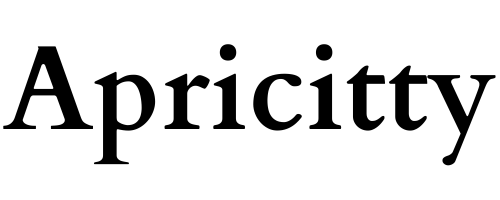
The Franco-Prussian War of 1870: How a Short Conflict Reshaped Modern Europe
Share
The War That Shaped Modern Europe
In the summer of 1870, a political spark ignited a military wildfire that would redraw the map of Europe. The Franco-Prussian War, often overlooked between the titanic conflicts of the Napoleonic era and World War I, was a brief yet seismic confrontation that altered the course of the continent’s future. This war was not just a military clash—it was a collision of ambitions, identities, and ideologies.
As a historian, I find this period fascinating not only for its geopolitical consequences but for the deeply human stories it left behind—of soldiers, doctors, and civilians navigating the horrors of siege and battle. In this post, we’ll explore the roots of the war, the brutal realities of life during the conflict, and the far-reaching consequences that still echo in our modern world.
The Road to War: Politics, Power, and Pretense
A Brewing Storm in Europe
The seeds of the Franco-Prussian War were sown in the aftermath of the Napoleonic Wars and the unsteady balance of power that followed. By the 1860s, Prussia, led by the brilliant and ruthless Chancellor Otto von Bismarck, was steadily rising. After defeating Austria in 1866 and forming the North German Confederation, Bismarck eyed full German unification, but one major obstacle remained: France.
France, under Napoleon III, feared encirclement and the loss of its prestige. As Prussia grew stronger, French leaders watched with increasing anxiety. The rivalry intensified with economic disputes like the customs union between Prussia and German states and culminated in a diplomatic crisis over the Spanish throne.
The Spanish Throne and the Ems Telegram
When the Spanish offered their crown to Prince Leopold of Hohenzollern-Sigmaringen, France protested fiercely. Though Leopold withdrew, France demanded further assurances. Bismarck saw an opportunity. He doctored the Ems Telegram—a summary of a meeting between King Wilhelm I of Prussia and the French ambassador—to make it seem like an insult to French dignity. The French press and public exploded in outrage, and on July 19, 1870, France declared war, playing directly into Bismarck’s hands.
A Clash of Armies: Strategy and Suffering
A War of Unequals
France entered the war confident but utterly unprepared. Despite bold claims that French troops would march into Berlin within weeks, their military suffered from poor planning, outdated weapons, and weak logistics. In contrast, the Prussian army, under General Helmuth von Moltke, was meticulously organized, technologically advanced, and backed by a robust railway network and industrial strength.
The Battle of Sedan and the Fall of an Empire
The turning point came swiftly. On September 2, 1870, at the Battle of Sedan, Napoleon III himself was captured along with over 100,000 soldiers. The crushing defeat led to the collapse of the French Second Empire, and a new Government of National Defense emerged in Paris.
Life During Wartime: The Human Experience
Inside the Siege of Paris
With the capital encircled from September 19, 1870 to January 28, 1871, Paris became a fortress—and a prison. Over two million residents endured starvation, disease, and fear as German artillery bombarded the city nightly. In the bitter cold, dogs, cats, rats, and even zoo animals were consumed for survival. Civilians took shelter in cellars; medical staff like Jean-Martin Charcot worked in improvised hospitals, tending to the wounded with scarce resources.
“We had no coal, little bread, and people ate what they could find. But we stayed in the city—we would not abandon her.” — Intern Alix Joffroy, Paris, 1870
The Soldier’s Perspective
For many young men, like Lassberg, a Bavarian soldier, the war was a journey from patriotic excitement to grim disillusionment. Letters from the front detail aching feet from endless marches, fear in the face of cannon fire, and tearful farewells to families at the train station. These raw testimonies offer a glimpse into how war reshapes the soul.
A Treaty Signed in a Palace: Consequences That Echoed for Decades
The Treaty of Frankfurt
On May 10, 1871, the Treaty of Frankfurt ended the war. The terms were harsh:
| Clause | France’s Penalty |
|---|---|
| Territory | Alsace and part of Lorraine ceded to Germany |
| Reparations | 5 billion gold francs |
| Occupation | German forces remained in France until payments were complete |
These losses sparked a nationalist outcry in France and laid the foundation for decades of enmity. Alsace-Lorraine became a rallying cry for revenge—a wound that bled into the 20th century.
The Birth of the German Empire
In a moment of triumph, Wilhelm I was crowned Emperor of Germany in the Hall of Mirrors at Versailles, an act designed to humiliate France and proclaim a new European power. The German Empire was born, uniting the North and South under one banner.
The Legacy: From Revanchism to World War
The Franco-Prussian War was short but seismic. Its legacy was multifaceted:
- It inspired nationalist and militarist movements across Europe.
- It devastated France’s political structure and gave rise to the Third Republic.
- It legitimized militarism and industrial warfare as tools of diplomacy.
- And it planted the seed of revanchism—the desire for revenge—that fueled France’s role in World War I.
As the art and literature of the time—like Émile Zola’s La Débâcle—show, the psychological scars of the war ran deep. Writers and artists processed collective trauma, while early studies by doctors like Charcot hinted at what we’d later call combat trauma or PTSD.
Why This War Still Matters
The Franco-Prussian War is more than a footnote in history. It marked the end of French dominance, the rise of Germany, and the beginning of a new and volatile European order. It showed how calculated diplomacy, nationalism, and military might could change the destiny of nations in just a few months.
Understanding this war helps us grasp the origins of modern Europe—and reminds us how fast stability can unravel when ambition outweighs caution.
